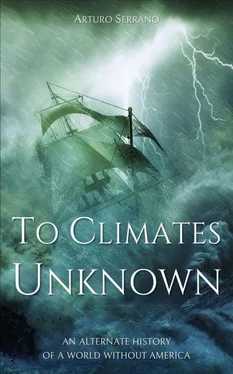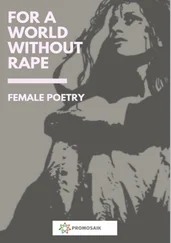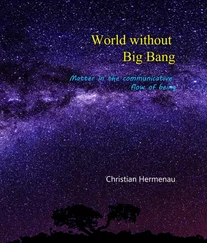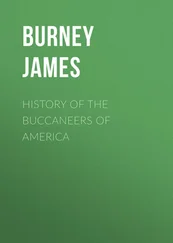Arturo Serrano - To Climates Unknown - An Alternate History of a World Without America
Здесь есть возможность читать онлайн «Arturo Serrano - To Climates Unknown - An Alternate History of a World Without America» весь текст электронной книги совершенно бесплатно (целиком полную версию без сокращений). В некоторых случаях можно слушать аудио, скачать через торрент в формате fb2 и присутствует краткое содержание. Город: Bogot,a, Год выпуска: 2021, ISBN: 2021, Издательство: Amazon, Жанр: Альтернативная история, на английском языке. Описание произведения, (предисловие) а так же отзывы посетителей доступны на портале библиотеки ЛибКат.
- Название:To Climates Unknown: An Alternate History of a World Without America
- Автор:
- Издательство:Amazon
- Жанр:
- Год:2021
- Город:Bogot,a
- ISBN:979-8-75808-648-3
- Рейтинг книги:3 / 5. Голосов: 1
-
Избранное:Добавить в избранное
- Отзывы:
-
Ваша оценка:
- 60
- 1
- 2
- 3
- 4
- 5
To Climates Unknown: An Alternate History of a World Without America: краткое содержание, описание и аннотация
Предлагаем к чтению аннотацию, описание, краткое содержание или предисловие (зависит от того, что написал сам автор книги «To Climates Unknown: An Alternate History of a World Without America»). Если вы не нашли необходимую информацию о книге — напишите в комментариях, мы постараемся отыскать её.
To Climates Unknown: An Alternate History of a World Without America — читать онлайн бесплатно полную книгу (весь текст) целиком
Ниже представлен текст книги, разбитый по страницам. Система сохранения места последней прочитанной страницы, позволяет с удобством читать онлайн бесплатно книгу «To Climates Unknown: An Alternate History of a World Without America», без необходимости каждый раз заново искать на чём Вы остановились. Поставьте закладку, и сможете в любой момент перейти на страницу, на которой закончили чтение.
Интервал:
Закладка:
Father Seijas showed him the last page of the bulletin. “That’s for the Pope to decide. Or rather, was. It says here that a meeting was arranged in Rome between the ambassadors of both empires. Since this Royal Bulletin is a month old, the scheduled date corresponds, for us, to last Friday.”
“Do you know what was resolved?”
“Not yet. But the fishermen at Mangaluru have been saying they’re not seeing any more submarines there. My guess is they’ve done a land swap: the Danes surrender India in exchange for, say, Encoberta, which we can reconquer anytime.”
So much for magnanimity, thought the professor. Encoberta, meaning hidden , was an unimaginably huge island, just off New Guinea, recently discovered by Dutch ships pushed southward by the tower-high waves generated by the Krakatau eruption, but seized by the Iberians soon after. It was named after one of the titles of the fabled king Sebastião, who was believed to be waiting at a secret location to one day save Portugal from doom, although, if the outcome of the world war was any indication, he wasn’t going to be needed for another while. The island had received its name because it was the last portion of Earth to be explored, which meant it had been waiting there for centuries until some ship finally happened upon it. However, Hiriyanna had heard reports that the place appeared to have inhabitants of its own, which made him doubt the aptness of the name.
Father Seijas noticed the magnitude of the worry in the professor’s face and gave him a fatherly smile. “You look more troubled than you should be. If you’re looking for permission to breathe easily, you have it. Rejoice. This is a good thing.”
The professor had more to say to that, but once again refrained. Living under Iberian rule made people develop odd coping skills. His was to pretend everything was normal until he was nearly able to believe it. The war had been a persistent but remote notion to him: he’d never seen it, never met anyone who’d been in it. He had no idea how his life was supposed to be any different without it. All he knew to do in the face of any change was to go about his day and do his tiny part in shaping it into normalcy. As a teacher, as a subject of His Catholic Majesty, as a family man, as a perpetual student of every form of wisdom there was to hear, he did not presume to have a hand in the flux of the future.
He looked for something to occupy the minutes until he felt calm again. He graded wrong answers. He read some Mozi in a Latin translation he’d bought from his friend Hariram. He went home.
Rukkamma entered the house in her school uniform and jumped to hug her father. He took her to the kitchen and served her lunch. As they sat to eat the lentil soup and millet dumplings he’d made, she went over the list of prepositions they’d been practicing since the previous week. They’d already been over auxiliary verbs and the formal second person, and he intended to introduce irregular conjugations soon after.
In the evening, his wife Lakshmi returned from work and found them in loud recitation and repetition, and as he served her her meal, she asked, “What is it this time? Portuguese? Catalan?”
“Spanish,” said the professor.
She blew on her spoon to cool it down, and remarked, “You were teaching her Italian last year. Why does she have to study so much so fast?”
“That’s how we’re going to shove the Europeans off our backs: by being smarter than them.”
Her eyebrows jumped up. “Are we Christians now? I didn’t know I’d given birth to the savior of India.”
The professor found the remark only partly funny. Theirs was one of the few Hindu families whose income permitted them to contribute alms to the Church and thus be excused from the mandatory program of the colonial administration whereby a member of the Order of Preachers was lodged in every household of a certain importance. Using the rules of the Church against itself was a skill finely honed in colonies everywhere, but it was a luxury he esteemed too easily taken for granted.
Oblivious to such concerns, Rukkamma smiled at the exchange. “What’s a savior?”
“It’s a Christian idea. Someone who suffers in another’s place,” replied her mother. “Not a wise thing to try if you care about their karma.” She didn’t bother to look, but she knew her husband was, in the interest of domestic harmony, suppressing the impulse to start a theological debate at the dinner table.
Upon examination of his own thoughts, he realized he still hadn’t mentioned the news of the day. Even to him its significance was obscure. His mind lingered on the strangeness of having peace in the world while sensing no difference in his immediate life. All of a sudden, he wondered whether any individual soldier could, in time, be called savior of the Iberian Empire. Certainly many would receive medals for the victory, but was it possible to trace the events back to the actions of one person? It gave him a vertiginous feeling to imagine that the fate of empires could hinge on one human life. History, according to the way writers in both East and West liked to tell it, was indeed tied to the choices of singularly important characters, but he’d overseen enough editions of the Kannada Dictionary of Great Iberians to have a more complicated opinion.
“After you left this morning, we got a letter from your friend in Pune,” said Lakshmi.
He swallowed fast and took a gulp of air to cool his throat down. “Now that’s good news.” For the past year, he’d been in contact with a modest-sized group of teachers who were lobbying colonial authorities to let girls of Muslim families get an elementary education. His own daughter was enrolled in a Catholic school only by effect of his respectable position, aided by his force of personality, but regulations were harsher in the northern provinces of Iberian India. “Where did you put it?”
“I left it in your office.”
“Thank you.”
When dinner was over, the professor announced he’d be spending time with his maps. Lakshmi sent a hard look at Rukkamma, who already knew not to enter her father’s office when that incredibly valuable paper was exposed.
He entered his office, closed the door, opened the bottom shelf of his desk and unrolled his forbidden prize, the Map of the World’s Colonies . As was his habit, his first glance went toward Asia, which was uniformly ruled from Beijing except for the frozen shores at the north, where the Danes kept their dominion by sheer willpower, and the lands of India at the south, a multicolored patchwork of disputed colonial claims.
The way this map chose to depict the world was disheartening to him. Regions within nations were not labeled according to their peoples or their tongues or their natural borders but merely by which empire laid claim to them. Africa, land of a million tribes, was printed in three colors: gold for Iberian possessions, azure for Canutic ones, and gray for those pockets of land that remained unconquered or unreachable.
He remembered his conversation with the Dean and let himself indulge on every retort he would’ve liked to hurl at him. On the Western Hemisphere, every country south of the Bravo river, independent or not, was a happily willing member of the Holy Lands of the True Cross (the salient exception being the Caledonian colony that still controlled the isthmus), but Vinland was more complicated. From north to south, there were the Prairie Confederacy, the Newe-Nuwuvi League, and the Republic of Nuevo México, squeezed between the Viceroyalty of New Spain in the south, Novadania in the north, the Third Californian Empire along the entire west coast (the map didn’t acknowledge the Oregón Free State), and finally, in the east, Royal New France, a huge strip of land that extended all the way from Quebec, bulged around the Great Lakes, and followed down the Mississippi encompassing all of Louisiane. Farther to the east, the coast was dotted with a dozen little colonies, starting in the far north with an oddly-shaped peninsula that had formerly belonged to New France but now was called New Holland, merged for administrative purposes with the nearby New Netherland. Between them, on a spot that the English had once tried to settle, was the curious experiment of Euzkadi Berria, founded by Basque whalers driven out of business by the Canutic fleet at the start of the world war. Then, to the south of New Netherland, was the rather unremarkable Realm of New Sweden, still under the old colonial rule but legally Canutic, and to the south of it lay the Dominion of Virginia, the only place that had been available for the English to flee to after the occupation of their homeland. It was, understandably, on most unfriendly terms with the neighboring New Wales, another Danish-supported venture. Next along the coast, on roughly the same territory as the failed Carolana colony, was the Alliance des Nègres Libres, a network of anarchist communes still figuring themselves out, that had more or less spontaneously split into a Pagan west and a Muslim east, living in an uncomfortable peace with each other and with the Republic of Cuba and the Floridas. The way he saw it, the Iberian king was surrounded by inept advisors if he seriously believed he could bring every last soul in the world to Rome.
Читать дальшеИнтервал:
Закладка:
Похожие книги на «To Climates Unknown: An Alternate History of a World Without America»
Представляем Вашему вниманию похожие книги на «To Climates Unknown: An Alternate History of a World Without America» списком для выбора. Мы отобрали схожую по названию и смыслу литературу в надежде предоставить читателям больше вариантов отыскать новые, интересные, ещё непрочитанные произведения.
Обсуждение, отзывы о книге «To Climates Unknown: An Alternate History of a World Without America» и просто собственные мнения читателей. Оставьте ваши комментарии, напишите, что Вы думаете о произведении, его смысле или главных героях. Укажите что конкретно понравилось, а что нет, и почему Вы так считаете.












